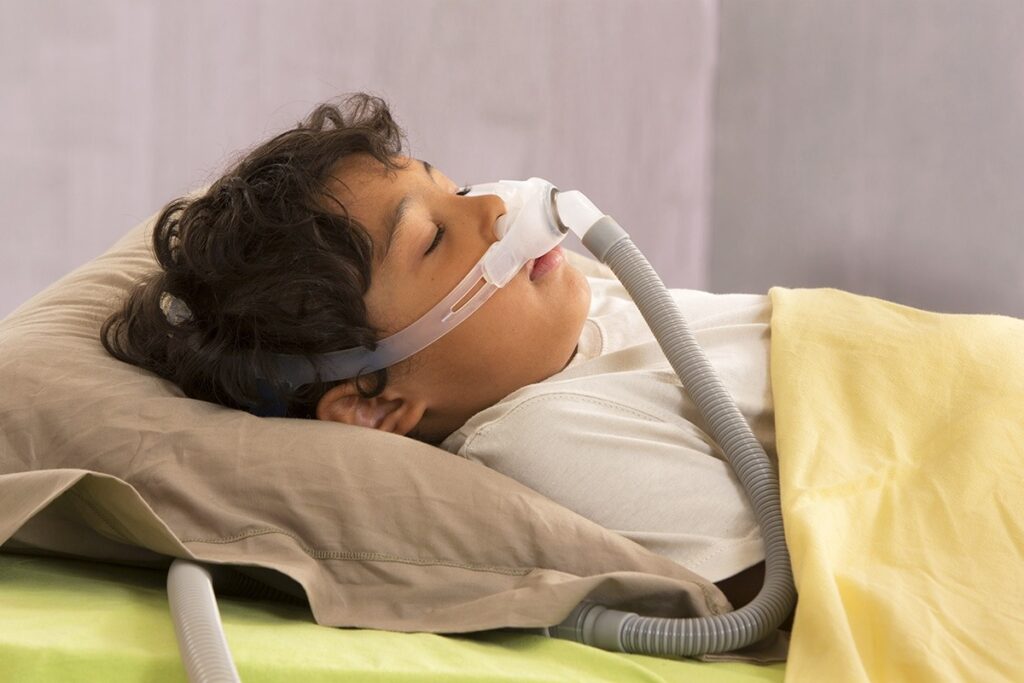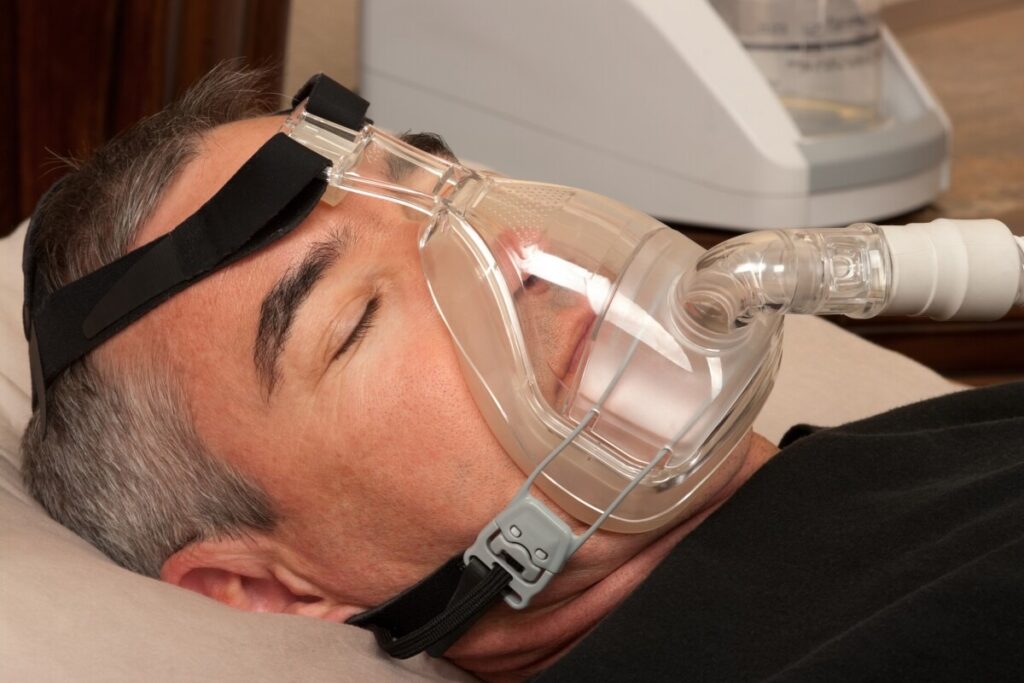Last Updated on October 21, 2025 by mcelik

Sleep apnea is a condition that can harm your health, including your brain.
Recent studies show that sleep apnea can deeply affect the brain. It might lead to problems with thinking and other brain issues.
But, new research offers hope. It says that with the right treatment, these brain changes can be undone.
So, the big question is: can the brain damage from sleep apnea be fixed? The answer is found in the latest science Asking can sleep apnea kill you? is a serious question. Learn the shocking truth about its risks, including brain damage and powerful treatments..
It’s important to understand sleep apnea to see how it affects our health, including our brains. This condition not only disrupts sleep but also has a big effect on our brain health.
Sleep apnea is a sleep disorder that causes breathing to stop and start many times during sleep. This can happen a lot, making sleep poor and blood oxygen levels low. Severe sleep apnea can make people very tired, cause sleep apnea extreme brain fog, and raise the risk of health problems.
The effects of sleep apnea on the brain are very serious. Studies show that untreated sleep apnea can hurt brain skills like memory and decision-making. It can also lead to mood issues like depression and anxiety because of the lack of sleep and low oxygen.
Sleep apnea is becoming more common in the United States, affecting about 30 million adults. This rise is due to more obesity, older people, and better diagnosis. As sleep apnea grows, so does the need to understand its effects on brain health.
In summary, sleep apnea is a big health issue that affects sleep and brain function. It’s key to know about it, its effects, and why it’s becoming more common. This knowledge helps us find ways to lessen its impact.
Studies using neuroimaging have shown how sleep apnea affects the brain. Advanced imaging has helped us see the changes in sleep apnea patients.
Research has found that sleep apnea causes brain changes. Reduced gray matter volume and altered brain activity patterns are seen in these patients. These changes can lead to cognitive decline and other neurological problems.
Sleep apnea also reduces white matter fiber integrity. This can disrupt brain signal transmission. Studies use diffusion tensor imaging (DTI) to measure this damage.

People with sleep apnea show anatomical changes, like reduced hippocampal volume. These changes can impact memory and learning. The severity of these changes often matches the severity of sleep apnea.
The evidence shows that sleep apnea can cause serious brain damage. It highlights the importance of early diagnosis and treatment to prevent these effects.
Untreated sleep apnea is a big health risk that can be deadly. It’s not just about bad sleep. It affects your brain and heart health too.
Sleep apnea can hurt your brain. It messes with your sleep, affecting memory and focus. Studies show it can make your brain age faster, leading to dementia or Alzheimer’s early on.
“Sleep disturbances, including sleep apnea, are associated with an increased risk of cognitive decline in older adults.”
Sleep apnea is bad for your heart. It can cause high blood pressure, heart disease, and stroke. The low oxygen levels in your blood can harm your heart, leading to serious problems.
Untreated sleep apnea is linked to a higher risk of death. Severe sleep apnea can lead to heart problems. Getting diagnosed and treated early is key to avoiding these risks.
In short, sleep apnea is a serious issue that needs quick action. The dangers of not treating it, like brain damage and heart disease, highlight the importance of early treatment.
Recent studies have shown that brain damage from sleep apnea might be reversible. Research at UCLA has given us a better understanding of how early-stage sleep apnea affects the brain. It also shows the possibility of recovery.
UCLA researchers have studied how sleep apnea impacts the brain. Their findings suggest that some brain damage from early-stage sleep apnea can be fixed with the right treatment.
Key findings from the UCLA research include:
The time it takes for the brain to recover from sleep apnea damage varies. This depends on the condition’s severity, treatment success, and overall health.
Some studies suggest that noticeable improvements can occur within:
Several factors can affect whether brain damage from sleep apnea can be reversed. These include the sleep apnea, the patient’s age, and other health conditions.
The possibility of reversing brain damage highlights the need for early diagnosis and treatment. Understanding what affects recovery helps healthcare providers create better treatment plans for each patient.
There are effective treatments to reverse brain damage from sleep apnea. Treating sleep apnea improves sleep quality. It also has the chance to reverse some brain damage.
Continuous Positive Airway Pressure (CPAP) therapy is a common treatment for sleep apnea. It involves wearing a mask over the nose and/or mouth during sleep. This mask delivers a continuous flow of air to keep the airway open.
Studies show that CPAP therapy can be effective in reversing some of the brain damage associated with sleep apnea. This is true when used consistently over a long period.
Research indicates that CPAP therapy can improve cognitive function. It can also reduce white matter damage. A study in the journal Sleep found that CPAP treatment improved cognitive function in patients with severe sleep apnea.
In addition to CPAP therapy, certain lifestyle changes can support brain recovery in individuals with sleep apnea. These include losing weight if obesity is a contributing factor, exercising regularly, and avoiding alcohol and sedatives before bedtime.
Other beneficial lifestyle changes include:
Making these lifestyle adjustments can help manage sleep apnea. They can also contribute to overall brain health. This can enhance the effectiveness of treatments like CPAP therapy.
By combining CPAP therapy with healthy lifestyle choices, individuals with sleep apnea can take proactive steps. They can reverse brain damage and improve their overall quality of life.
Untreated sleep apnea can harm brain health, leading to cognitive decline and heart problems. But early action can greatly reduce these risks. It might even reverse brain damage.
Getting sleep apnea treated early is key to avoiding brain damage. By getting medical help and following treatment plans, people can keep their brains healthy. This lowers the chance of other health issues.
It’s very important to act early. Taking steps to treat sleep apnea can protect overall health. This ensures a better quality.
Sleep apnea can’t be “cured” in the classical sense. But, it can be managed with treatment. In some cases, symptoms can be significantly reduced or eliminated.
Yes, severe sleep apnea can be life-threatening if left untreated. It increases the risk of cardiovascular complications, cognitive decline, and mortality.
Treatment options include CPAP therapy, lifestyle changes, and sometimes surgery. The most effective plan often combines these approaches.
Sleep apnea typically doesn’t go away on its own. But symptoms can be managed with treatment. Lifestyle changes can help alleviate mild symptoms.
Sleep apnea itself can’t be reversed. But treatment can significantly reduce symptoms and prevent brain damage. Early treatment can lead to brain recovery.
Untreated sleep apnea can cause cognitive decline, cardiovascular disease, mood disorders, and increased mortality risk.
Yes, untreated sleep apnea can increase mortality risk due to cardiovascular complications and other health issues.
Treatment for sleep apnea, including CPAP therapy and lifestyle changes, can help repair white matter damage in the brain.
Severe sleep apnea symptoms include loud snoring, frequent awakenings, morning headaches, and excessive daytime sleepiness.
Yes, untreated sleep apnea can increase mortality risk. It’s essential to seek medical attention if symptoms persist.
Subscribe to our e-newsletter to stay informed about the latest innovations in the world of health and exclusive offers!
WhatsApp us